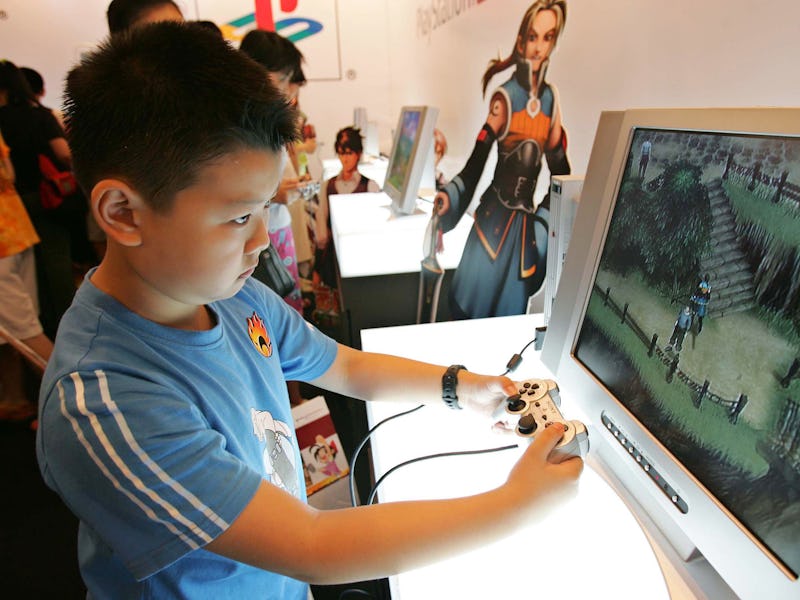Video Game Addicts Should Fight the Inner Boss With ADHD or Depression Treatment
Button mashing can be a symptom (as well as a cure).

Video games have become a ubiquitous part of culture. In the United States alone, 155 million people play video games and 42 percent of those gamers get after it three hours a week or more. There’s nothing wrong with that — and the argument that games are more engaging than television has validity — but there is an outlier group that displays an unhealthy compulsion to gaming. Now, new research indicates that a need to play may be indicative of an untreated psychiatric disorder.
In a new study published in the journal Psychology of Addictive Behaviors, University of Bergen researchers found that video game addiction can be associated with attention deficit/hyperactivity disorder, obsessive-compulsive disorder, and depression. The compulsive need to play, they believe, indicates that video games are used as a defense mechanism.
“Excessively engaging in gaming may function as an escape mechanism for, or coping with, underlying psychiatric disorders in attempt to alleviate unpleasant feelings, and to calm restless bodies,” lead author Cecilie Shou Andreassen explained in a statement.
The study asked 23,533 adults — men and women, ranging from 16 to 88 years old — to fill out an online cross-sectional survey which asked how they felt about social media and video games, and asked if they identified with symptoms of depression, A.D.H.D., and O.C.D. The survey also included statements like “You think about playing a game all day long” and “You play games to forget about real life.” Participants were asked to read the statements and then score themselves on scale from “never” to “very often.”
Study subjects that said they “often” identified with at least four out of seven statements consistent with having an addiction to either video games or social media — which the researchers believed could impair the subject’s health, work, and social relations. The researchers found that women were more likely to feel addicted to social media, while men were more addicted to video games — especially young, single men.
Andreassen says that while most people have a relaxed relationship to video games, her work indicates the importance of identifying those who do not — and might not in the future. People who exhibit the disorders studied here may need to be targeted early on to ensure that they don’t develop an “unhealthy gaming pattern.”
It’s a different approach than other researchers who think that video games, used in moderation, could actually help people cope with A.D.H.D. In particular, the creators behind EVO believe games can help with concentration skills, and serve as an alternative to Adderall. While video games have certainly permeated society, whether they hurt more than help is still up for debate.